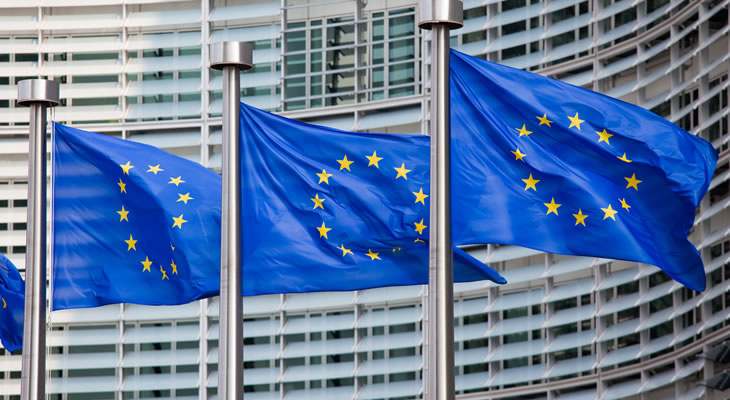The Pound continues to rise against the Euro, helped by fears that far-right candidate Marine Le Pen will win the French Presidency later in the year.
The elections aren’t until the end of April and beginning of May, but investors seem to have learnt their lesson from Brexit and Donald Trump and are quickly fleeing from the common currency.
Gains of 1.5% since the start of the week have pushed GBP EUR up to its best levels in 2017 at around 1.19.
‘No one seems optimistic about the political future,’ explains Kathleen Brooks of City Index. ‘Marine Le Pen in France is now the front-runner to win the first round of the French Presidential election, and her prospects are also improving for the second round.’
Le Pen claims she will withdraw France from the Eurozone, reinstating the Franc and creating a basket of currencies that will be pegged to the Euro; this means she’ll encourage other nations to also readopt their domestic tenders. Many believe this could cause the collapse of the shared currency.
In fact, investors are so worried about the potential outcome of the French elections that they are fleeing to German debt. French bonds are being sold off and investors desperate for safety are even willing to buy negatively-yielding bonds; essentially paying for the privilege of lending the German government money.
Yields on two-year German treasuries (also known as Bunds) have hit a fresh historical low of -0.87%.
Comparatively, the UK’s political outlook seems surprisingly rosy. Brexit may cause a wobble in March when Article 50 is officially triggered, but overall it seems the outlook for GBP EUR is positive.
Economic strength and Bank of England (BoE) policy outlook will be the key deciders for the Pound. If today’s second estimates of 2016 Q4 GDP growth remain solid, the stoicism of the UK’s vital services sector should help support the Pound higher.
However, we have already had indications from recent data that consumer spending is going to, or already has begun to, slow. Wage growth unexpectedly weakened in the three months to December last year, while January’s retail sales figures were significantly worse-than-expected.
2017 Q1 GDP data will therefore be key in determining the outlook for the Pound. The Euro may get a reprieve from weakening on political concerns if UK economic activity has slowed at the beginning of the year. Economists claim the pain from the Brexit vote will make itself felt this year, so poor growth figures for the first quarter would be evidence to back up their dovish claims.
Strong GDP figures would also make it harder for the Bank of England to resist calls to tighten monetary policy. There are already divides in the Monetary Policy Committee (MPC) following recent strong inflation data, with policymaker Ian McCafferty claiming consumer price growth was nearing the limit of what could be tolerated.
Governor Mark Carney claims the rise is still entirely driven by the weakened Pound Sterling exchange rates, however. Should price growth overheat and the economy remain on a strong footing, rate hike bets are going to support the Pound higher. Weakening economic activity would give Carney a perfect excuse to keep rates frozen for longer, providing a double-whammy of bad news for Sterling investors.
So there are potential bumps in the road for Sterling. But with the Euro already showing signs of tracking political sentiment rather than data (recent Markit PMIs showed above-forecast growth across the currency bloc, but EUR GBP fell), it seems the common currency’s downtrend is likely to stay.
The first round of voting for the French Presidency doesn’t take place for another eight weeks. Unless shock developments derail Le Pen’s campaign, it seems likely fears of her victory are only going to weaken the Euro further.


Comments are closed.